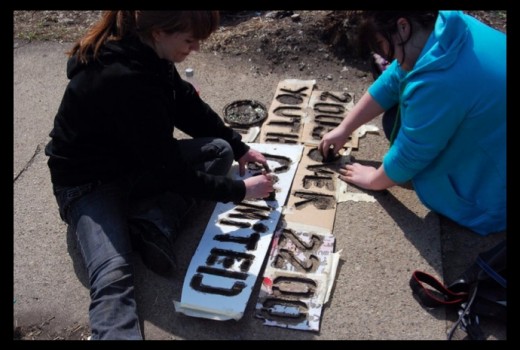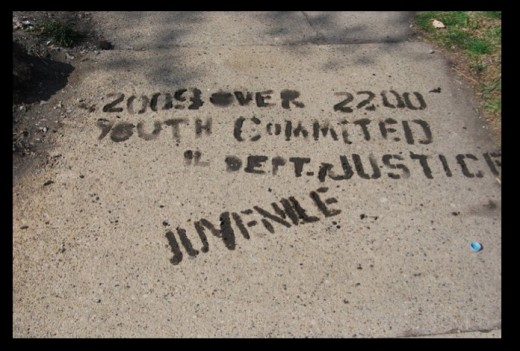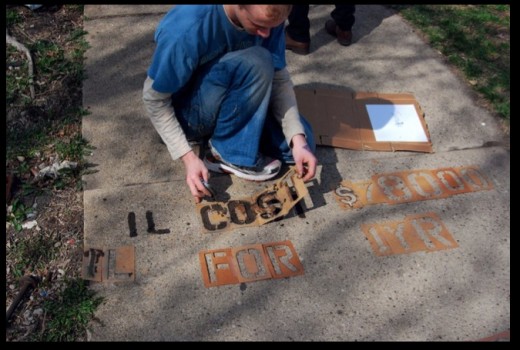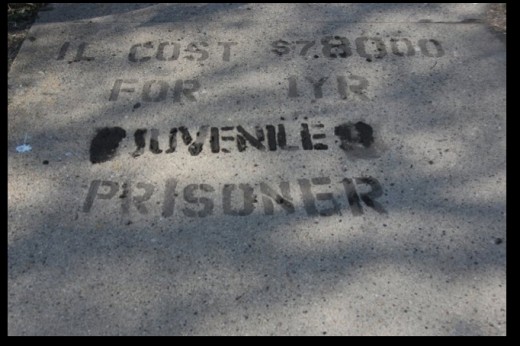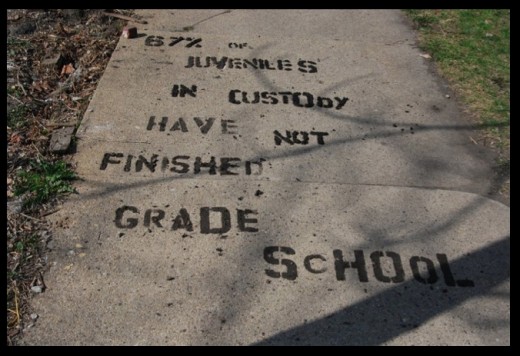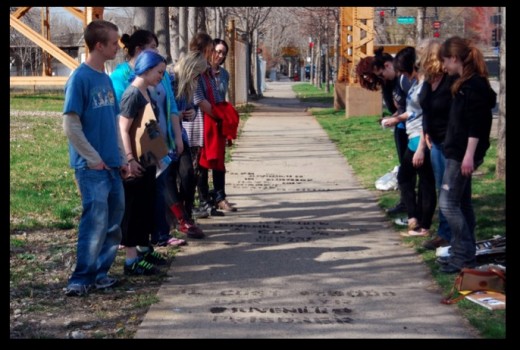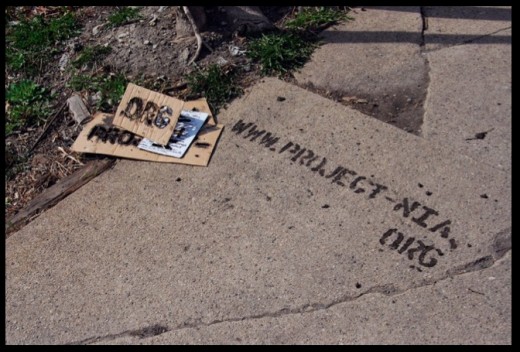David Simon is piloting his road-worn Volkswagen Passat through the streets of New Orleans, his mind on the city. As we roll from one filming location to another of his HBO show
Treme, he points out landmarks: the Industrial Canal that burst its banks during Hurricane Katrina; the Lower Ninth Ward that was drowned as a result; the former site of a studio where some of the city's most important musicians cut their first records.
"We want the show to be about New Orleans," he says. "It's about what New Orleans means, about why it matters."
Simon is best known as the creator of
The Wire, HBO's sprawling but intricately intertwined saga of crime, justice, politics, and the press in a terminally decaying Baltimore. In person, he's garrulous and aggressively intelligent, sociable without exactly being friendly. He has rounded features and an ursine frame clad in sneakers, jeans, a Kangol cap, and a hoodie that seems barely adequate protection from the damp, biting wind on this December day.
At each set, he slaps backs and checks in with the actors, writers, and crew, making sure that what is being filmed is as close to real as he can make it. For a scene set in an office of the Road Home federal aid program for Katrina victims, he wants to make sure the building they're using really is a Road Home office. At a murder scene, he looks to see whether there are bullet casings on the ground. And at a shot including a trumpet solo by legendary local jazzman Kermit Ruffins, Simon swaps a quick man-hug with the actor he's hired for the part: Kermit Ruffins.
After thirteen years as a crime reporter at the
Baltimore Sun, Simon abandoned the sinking ship of newspaper journalism in the mid-1990s to write for
Homicide, the NBC series based on his nonfiction book about Baltimore cops. In 2000, he adapted another book he authored into
The Corner, an HBO miniseries focusing on the dealers, addicts, and civilians enmeshed in the drug market of a West Baltimore street. That netted Simon three Emmy awards, and was the seed from which
The Wire's five-season run grew. Though
The Wire never drew a huge audience, critics drooled over its multifaceted structure and nuanced portrayal of the lives of those cast off, forgotten, and fucked over by the post-industrial American economy, from petty drug dealers to inner city schoolteachers to laid-off dock workers.
Treme, the second season of which premieres April 24, is in some ways a similar meditation on post-Katrina New Orleans. But
Treme is not another cop show. Even though police, drugs, and prisons figure into
Treme's several braided and branching storylines, the show's central concern is a unique segment of New Orleans's working class: musicians, and what they mean for the city. Over the course of a working afternoon and a gumbo and po' boy dinner, Simon explains why.
Q:You've said Treme is not The Wire set in New Orleans. But it is a similar kind of animal. It's a many-sided, many-charactered, novelistic examination of a badly damaged American city. Is there a common theme between them?
David Simon: Well, in terms of governance or institutions, the New Orleans of
Treme may be as problematic as the Baltimore of
The Wire. Even more so, because 80 percent of it went under water a short time before. So, it's clearly the same backdrop. But it's saying something different using that backdrop.
This show, if we do it right, is an argument for the city. For the idea of American urbanity, for the melting pot, for the idea that our future can't be separated from the fact that we are all going to be increasingly compacted into urban areas, though we're different in race and culture and religion. And what we make of that will determine the American future.
I listened during the last election cycle to the rhetoric about small town values and where the real Americans live. I thought to myself, "I've never heard such bullshit in my life." Rural America's not coming back. That idea was lost with the Industrial Revolution. And yet with more than 80 percent of Americans living in metropolitan areas, there are still demagogues who want to run down the idea of multiculturalism, of urbanity, being the only future we have. We either live or die based on how we live in cities, and our society is either going to be great or not based on how we perform as creatures of the city.
Q: You wrote once that The Wire was "ruminations on the end of empire. What it's like for a society to no longer have the will to pull itself, as a whole, as a single entity, forward. That's a recipe for the disenfranchisement of significant portions of the country." That sounds like it could apply just as easily to New Orleans as to Baltimore.
Simon: Yeah, it can. One thing we're trying to show is the lack of political and social will to help New Orleans. People here felt alone after the storm. Entirely alone. Alienated not just from Washington or the rest of the country but the rest of the state. We have no sense of the collective anymore in America. The response to Katrina was proof positive of that.
But what brought this city back has been culture: an unyielding unwillingness to part with the living tradition that is life in New Orleans. One crawfish etouffe, one saxophone solo at a time, the city is coming back. Before the storm, 77 percent of the people who lived here were born here. In the transient state that is modern America, that's a remarkable statistic. It speaks to the fact that people who are from here can't imagine living their life anywhere else. There's so many reasons not to be here. The crime is rampant. The police department is as dysfunctional as any in the country. The school system's among the worst in America. The infrastructure. . . . Have you seen these potholes?
Q: They're very impressive.
Simon: This is what happens when you have no tax base. Corruption is endemic. Yet, people came home and they continue to come home. This city comes back because it's New Orleans.
The rest of America, with some small exceptions, has been bulldozed and rebuilt and then bulldozed and rebuilt again. Our places have become interchangeable. Here, everything from the architecture to the way in which people eat, the way in which they talk, the way in which they do business, the way in which they dance, the manner in which everything is set to a parade beat, they're all from here. There's no place like it.
What city has given the world more in terms of American culture than New Orleans? There is none. Not New York. Not L.A. Not Chicago. Not any- where, in the sense that African American music has gone around the world twenty times over, and it's continuing to evolve. It is our greatest cultural export.
Q: Greatest in what sense?
Simon: In an empirical sense. What else would you compare to it?
Q: Movies and TV.
Simon: That's not ours. The Germans invented that.
Q: Maybe they invented film, but Hollywood movies are one of the most ubiquitous cultural products in the world.
Simon: Listen, we didn't create the culture of film. We certainly market it better than anyone in the world, but film could have happened anywhere. It's not distinctly American, as witnessed by the fact that there are film communities throughout the world that tell stories to their own cultural liking. Blue jeans have gone around the world. But that's a product. We market blue jeans better, just as we market film better. But you can't tell me that if America didn't exist, the culture of movies wouldn't exist. It's not a distinctly American art form.
But African American music can't happen in Germany or in Italy or in Mumbai. If America disappeared off the face of the Earth today, the greatest single cultural loss would be blues, jazz, hip-hop, R&B, rock-and-roll. If you go into a bar or a shebeen or a tavern anywhere in the world, Timbuktu, London, Ouagadougou, Johannesburg, anywhere you go, if they have a jukebox there will be American music. This is the cradle of it. This is where it happened, Congo Square, the Trem neighborhood. The marriage of the West African pentatonic scale and rhythm to European arrangement and instrumentation happened in eight square blocks of this city and was nurtured in this city and is still nurtured in this city as a living tradition. That represents, without a doubt, the greatest truly American cultural contribution.
Q: Another theme that crops up a lot in Treme is authenticity--who belongs here, who doesn't, who's really from New Orleans, who isn't. What are you trying to say with all that?
Simon: It's a form of patriotism. That is the patriot- ism that was once reserved for the nation-state. Where immigrant families would compete against other immigrant families over who had been here the longest and who was the most invested. That was when the identification with the American ideal and the American collective seemed not only utterly desirable but essential. Because America, in turn, was identifying with the collective, with every class. It wasn't as if the rich weren't going to get richer; it wasn't as if the poor didn't have a harder life. But everybody, certainly from the time of the New Deal, believed in the ideal that we were all in this together. Or at least enough people believed it that we bought into that notion that the poor and the middle class and the rich were all invested in the same collective outcome. Nobody was going to get there on their own.
It was a time before gated communities. It was a time before charter schools. It was a time before cap- ital had won a complete victory over labor. Before globalization. When you believed your tomorrow might be better than your today, even if it was only going to be marginally better, or even if it was your kids that were going to have it better. If you were invested, and if you got up, dragged your ass to work every day, there was going to be a place for you. When that held, patriotism couldn't be made to seem naive. Belief in the nation-state was plausible.
In the wake of Katrina, what you're witnessing and what we are very careful to depict is a form of patriot- ism. An insistence on belonging in this nation-state-- New Orleans. People from here will often say, "I'm not from the United States, I'm from New Orleans."
Q: How does working as a writer of fictional TV narratives compare to that of being a journalist?
Simon: More people pay attention to fiction and to narrative than pay attention to journalism. That's quite sad. More people pay attention to television than to prose. That's equally sad, if not more so. I wrote a book (The Corner) that was a very deliberate critique of the drug war. Because it was made into a miniseries, I may have sold a couple hundred thou- sand of them so far in a country of 300 million.
By comparison, over time, with DVD sales and re-watch and whatever, maybe ten million people have seen the television version of
The Corner. Maybe twenty million people have seen
The Wire.
Nobody reads anymore in America. Reading has become the least effective delivery system for narrative. That's sad because prose is the means by which you can deliver very complicated, nuanced explanations of problems and possible solutions.
A TV show can't hold people and institutions to account like good journalism can. But if I can make you care about a character, I may make you think a little longer about certain dynamics that might cause you to reconsider your own political inertia or your own political myopia. You might be more willing to accept a critique of the prevailing political and social systems. Or not. Because a lot of times
The Wire was entertaining just because it was entertaining, and people watched it and they got no political message whatsoever. Or it reaffirmed their belief that "they're in the ghetto because they deserve it."
The best I can hope for is that I might provoke a water cooler argument between you and somebody else. But it is not journalism. It doesn't have the rigor of journalism. It doesn't have the proof positive that facts provide. So it can be readily dismissed as mere propaganda. But I can certainly reach more people.
Q: You're a guy who wants to make a difference. You want to have an impact . . .
Simon: I'm a socialist. I'm not a Marxist, but I am a socialist. You hear these sons of bitches invoke social- ism to suggest that we shouldn't have an actuarial group of 300 million people and keep all of us a little more healthy by sharing. It's a thoughtless triumph of ignorance.
Both parties fear telling the truth. The collapse of all democratic integrity over taxes is near complete. I'm making a lot of money. I should be paying a lot more taxes. I'm not paying taxes at a rate that is even close to what people were paying under Eisenhower. Do people think America wasn't ascendant and wasn't an upwardly mobile society under Eisenhower in the '50s? Nobody was looking at the country then and thinking to themselves, "We're taxing ourselves into oblivion." Yet there isn't a politician with balls enough to tell that truth because the whole system has been muddied by the rich. It's been purchased.
But the thing about
Treme or even
The Wire is that at no point can the characters say the kind of shit that I'm saying to you because no characters would. You've got to love your characters for who they are. Antoine Batiste, he's a musician. He's thinking about where the next gig is, and pussy. And not necessarily in that order.
Vince Beiser is a Miller-McCune contributing editor based in Los Angeles.



